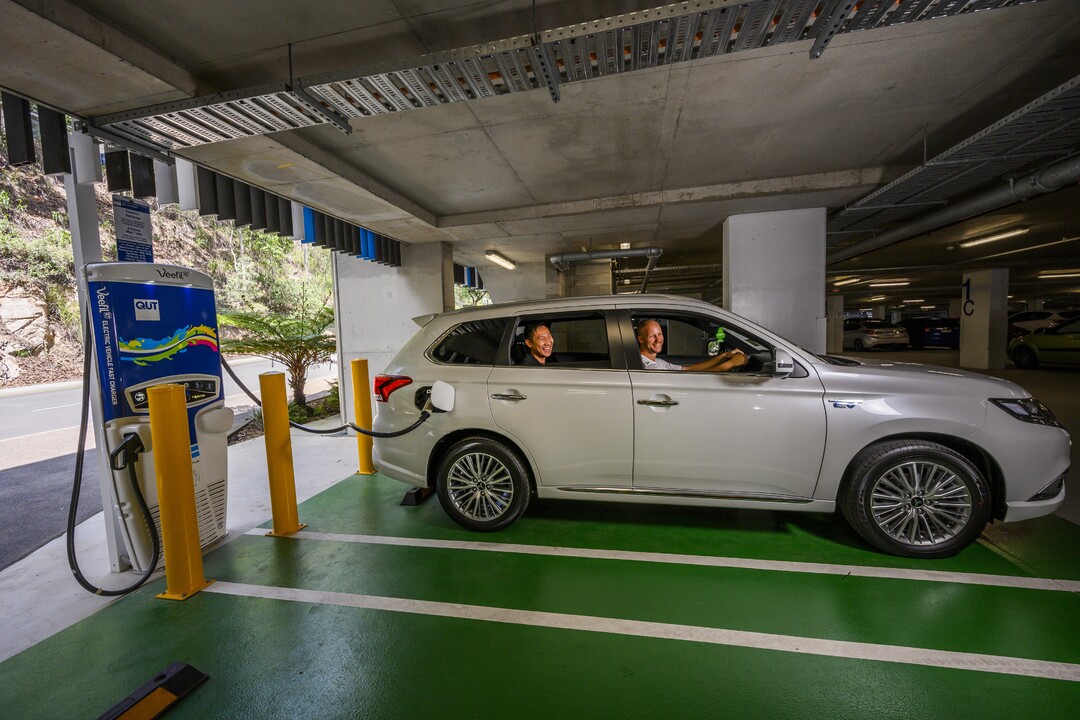
Universities must model sustainability
The start of a new year is a time for introspection, evaluation and planning. As we consider the twin crises that impacted the world in 2021, the COVID-19 pandemic and a surge in devastating natural disasters caused by climate change, it is time to consider universities’ roles in responding to these crises.
Universities have been part of the scientific and medical response to the pandemic and must also play a special role in supporting the world to transition to a sustainable future. We live in a pivotal era: we face a climate emergency and a biodiversity crisis and the next decade is critical. We need to shift the world onto a sustainable trajectory by 2030 and largely decarbonise the global economy by 2050.
Universities can lead the way in responding to climate change
Universities can lead the way, not only by minimising their campuses’ environmental footprints, but also by maximising the sustainability impact of their teaching, research, and partnerships.
The ripple effects of our work are massive: every year universities produce thousands of graduates, ideas, and inventions, which can be agents and vehicles of sustainable change.
The Paris Agreement, supported by Intergovernmental Panel on Climate Change reports, set a clear agenda for all governments and organisations to limit global warming to 1.5 degrees. Each of us must play our part, and the university sector in Australia and New Zealand have the world’s most advanced and ambitious net zero commitments and are embedding sustainability into our strategy, operations, education, research, and advocacy.
The five ways universities can tackle climate change
Universities naturally have a large amount of support for sustainable actions from students and staff, but to have meaningful impact the institutions themselves must make a strategic commitment to sustainability. At QUT we have made Sustainability and the Environment one of the seven priorities in our strategic plan, and last year we became the first university in Australia to create a senior academic sustainability role, appointing leading environmental scientist Professor Kerrie Wilson as Pro-Vice Chancellor of Sustainability Strategy.
The second part of a university’s role is operations. We need to practise what we preach and what we teach. First and foremost, that means minimising the greenhouse gas emissions linked to our activities. We need to reduce the energy consumption and improve the energy efficiency of our buildings, maximise the use of renewable energy sources, and use high-quality carbon offsets for any residual emissions that can’t feasibly be eliminated. As well minimising the impact of our campuses on the climate, we need to minimise the impact of the climate on our campuses by designing campuses that can handle increasing risks of flooding, bushfires and gale-force winds.
Universities can drive green initiatives that can generate hundreds of jobs and accelerate the decarbonisation of the economy. A perfect example is the partnership between QUT, Griffith University, Central Queensland University, and the Queensland Government–owned energy company CS Energy to establish a new solar farm at Columboola in western Queensland. This farm will provide a significant amount of each university’s power needs.
The third part of the role of universities in fighting climate change is probably the most powerful — education. Through our undergraduate, postgraduate and professional education, universities can equip graduates to build a more sustainable world through their careers and communities. We can do this through individual, targeted subjects and by embedding sustainability across the curriculum.
The fourth way universities can combat climate change is through research. We need fundamental and applied research into the drivers and impacts of climate change and we need interdisciplinary research into technology, policy, and behavioural solutions. It is vital to collaborate closely with industry to implement research ideas at a commercial scale. A practical approach is particularly important in the climate and sustainability space, given the immense urgency of the problems.
Finally, there is advocacy: universities can publicly share their expertise about sustainability problems and solutions to the climate crisis. This may be through communicating with the public; by working with local, national, or international organisations to develop policy recommendations; or by directly advising governments on the best and latest science and evidence.
Both individuals and institutions must play a role
Each of us, as individuals and as institutions, have a duty to fight climate change and build a sustainable world – for the sake of our children, future generations and all the animals and plants we share the planet with. While this is a huge challenge, it is also a wonderful opportunity to be part of one of the greatest transformations in human history.


I enjoyed teaching Systainability at QUT in the School of Management! A very popular subject with the students!
Executive | Higher Ed Strategist | Transformative leader | Board Experience | Partnerships Broker | Engagement | Public Speaker | Award winner
2yEmbedding sustainability in QUT's curriculum and supporting our students in becoming agents of change is wonderful! Great to hear about the role that Universities can play in such an important global issue.
Business Development Executive
2yThis is a really interesting by @Margaret Sheil and @Kerrie Wilson about QUT's committment to sustainability.
Professor of Community Health & Wellbeing at The University of Queensland. Creatively blending research excellence, leadership and strategy to empower our most influential thought leaders.
2yI really enjoyed reading this and seeing this leadership!